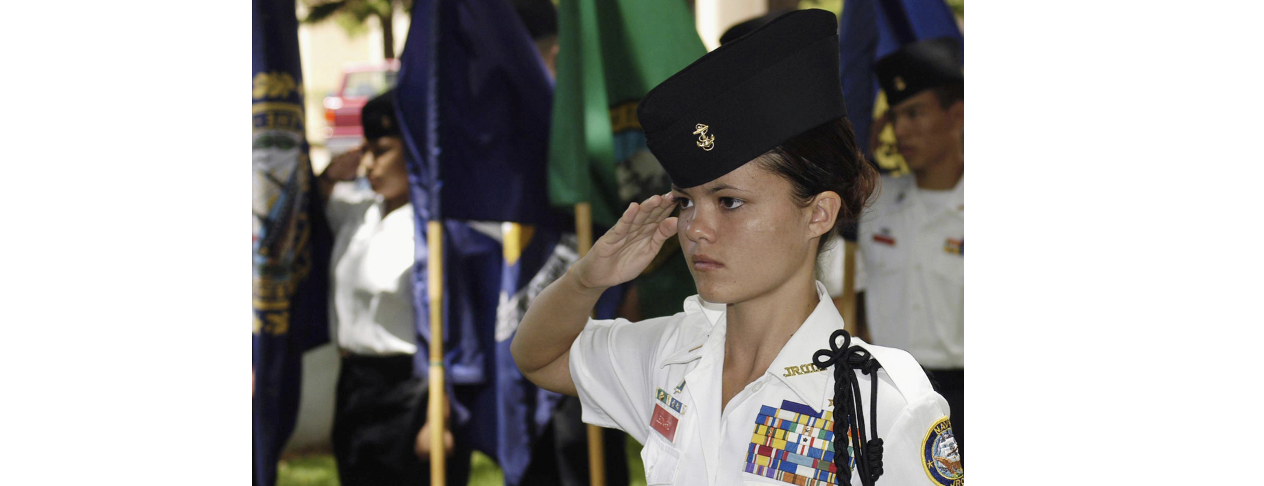JROTC programs bridge the skilled career readiness gap
By Glenn Marshall, Guest Columnist, originally posted in Virginian-Pilot and Daily Press
The retirement of the baby boomer generation, sometimes called the “silver tsunami,” is leading to changes in the workforce across multiple sectors, such as industry, services, and defense. Organizations are experiencing increased turnover along with a decrease in institutional knowledge and career readiness skills. The number of individuals entering the labor force does not match the rate of retirements, with approximately 10,000 baby boomers retiring each day.
Harry Moser, founder and CEO of the Reshoring Initiative, emphasizes the importance of a skilled workforce, stating, "A strong skilled workforce is essential to reshoring and manufacturing growth. The development of a skilled workforce begins with motivating a higher quantity and quality of recruits."
The Junior Reserve Officers' Training Corps (JROTC) plays a key role in fostering these skills and values in its career-ready cadets. Established in 1916, the JROTC serves more than 500,000 high school students in more than 3,400 schools. With a $390 million budget, it promotes citizenship, leadership, and workforce readiness. In 2020, JROTC revised its curriculum to focus on integrating science, technology, engineering, and mathematics (STEM) education, which fosters critical thinking, creativity, innovation, and problem-solving skills.
In Virginia, career technical education (CTE) work-based learning focuses on practical skills and leadership for high-demand careers. Schools partner with local businesses to access advanced technology, supporting both community ties and education. JROTC programs are integrating digital tools such as AI and mobile apps to enhance training. Community participation is vital for CTE work-based learning and JROTC, connecting students with mentors and resources.
In Newport News, Denbigh High School’s Army JROTC "Patriot Battalion" held its annual awards ceremony in June to acknowledge cadet achievements for the 2024-2025 school year. Cadets received awards from organizations such as the local Peninsula Chapter of the Military Officers Association of America, the American Legion, Veterans of Foreign War, and Daughters of the American Revolution, recognizing cadets’ progress toward career, public service, and college readiness.
The Army JROTC Mission is "To motivate young people to be better citizens." The U.S. Army JROTC’s Cadet Creed reads, “I am an Army Junior ROTC cadet. I will honor my family, country, school, and Corps of Cadets. I am loyal, patriotic, and dedicated to America's future. Honesty and accountability guide me. I practice good citizenship, strive for self-improvement, seek leadership roles, and uphold the Constitution and American values. May I have the strength to follow this creed.”
High school JROTC programs focus on leadership and character development, drawing from models used at the U.S. Military Academy in West Point, N.Y., and the U.S. Naval Academy in Annapolis, Md. After two years of participation, cadets may join the military at a higher rank and pay grade. Experience gained in this program can strengthen job or college applications.
William & Mary's ROTC unit, "The Revolutionary Guard Battalion," prepares students for roles in military and civilian leadership. Army ROTC scholarships are available to high school seniors and current students. The program offers comprehensive military science coursework and collaborates with Christopher Newport University for officer training. William & Mary also works with Hampton University, allowing cross-registration for Navy or Marine Corps officer preparation.
The 2024 defense policy bill calls for 3,400-4,000 JROTC units nationwide; 300 schools are waiting, and 15 new units are set for 2024. The Army oversees about half of all global JROTC units and wait times remain long. Students interested in JROTC typically need satisfactory academic performance and disciplinary records. Leadership instruction is provided through high school- or partner-based programs.
For further details, students and parents can contact school advisors or counselors. JROTC aims to prepare students for varied career paths, military service, or higher education.Glenn Marshall of Williamsburg is an Army veteran and is retired from Newport News Shipbuilding. He is a member of the Military Officers Association of America, the American Legion, Veterans of Foreign Wars and the Reshoring Initiative. Email him at Marsh82792@aol.com.
- - -

